In 2023, businesses leveraging AI in digital marketing saw a 35% increase in ROI compared to those without AI, according to a recent study by Forrester. This post uncovers how AI SEO strategies and data-driven marketing are transforming the landscape, providing actionable insights for CTOs and marketing leaders looking to modernize their approaches, boost scalability, and achieve measurable outcomes.
The Role of AI in SEO Strategy
Enhancing SEO with Artificial Intelligence
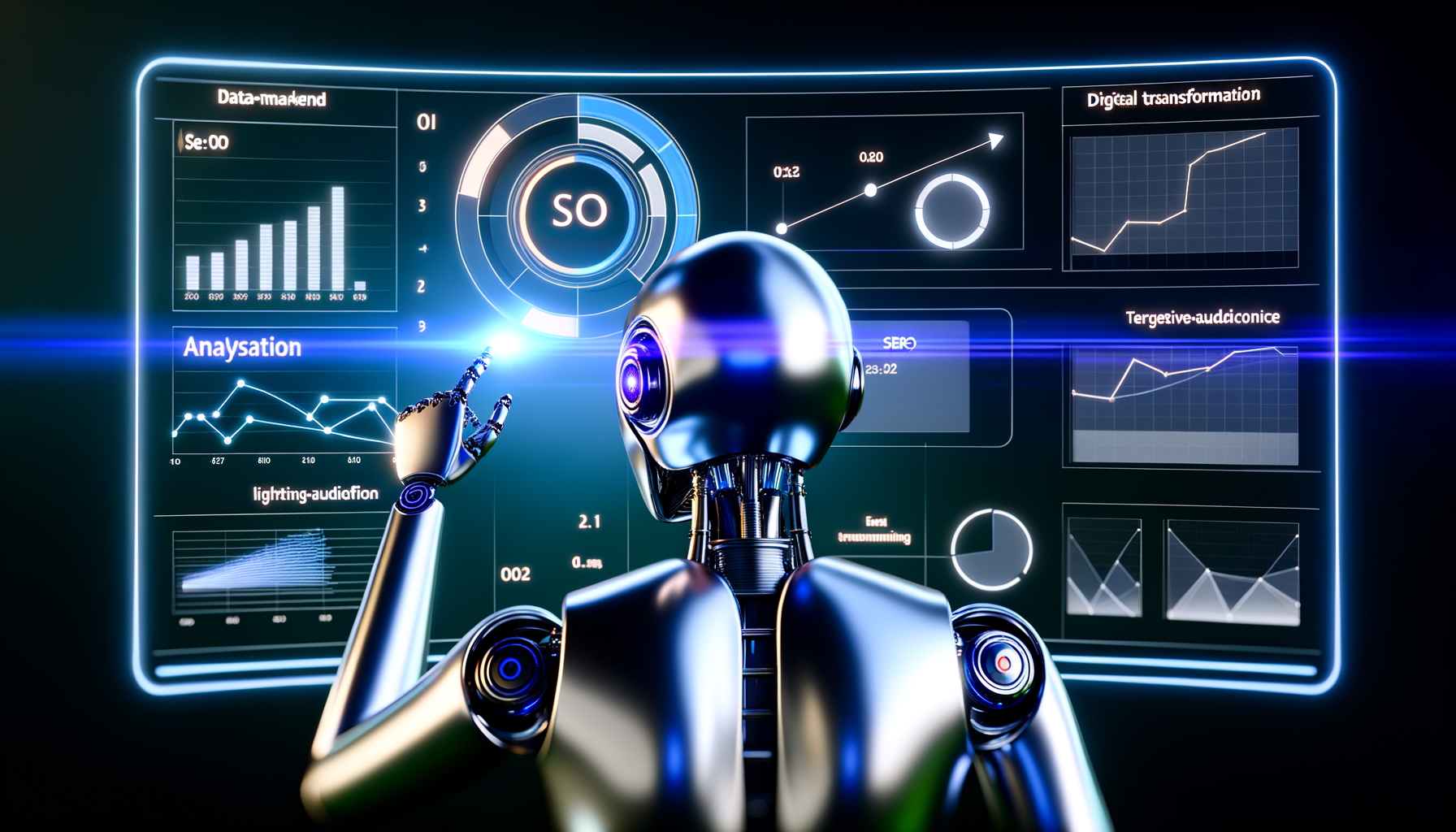
AI analyzing SEO data on a futuristic interface.
AI's integration into SEO is no longer a futuristic concept—it's a 2025 reality. AI can analyze vast datasets to uncover patterns and optimize keywords, ensuring your content reaches its intended audience efficiently.
AI tools like BrightEdge and MarketMuse are revolutionizing keyword strategy by providing actionable insights and automating labor-intensive processes. These tools help predict search trends, allowing businesses to remain ahead of the curve.
Implementing AI in SEO doesn't mean replacing your team. It's about enhancing their capabilities, allowing them to focus on strategic initiatives rather than mundane keyword research.
LIST
- •Predictive Keyword Analysis
- •Content Optimization
- •Automated Reporting
Harnessing Digital Marketing Analytics
Turning Data into Decisions
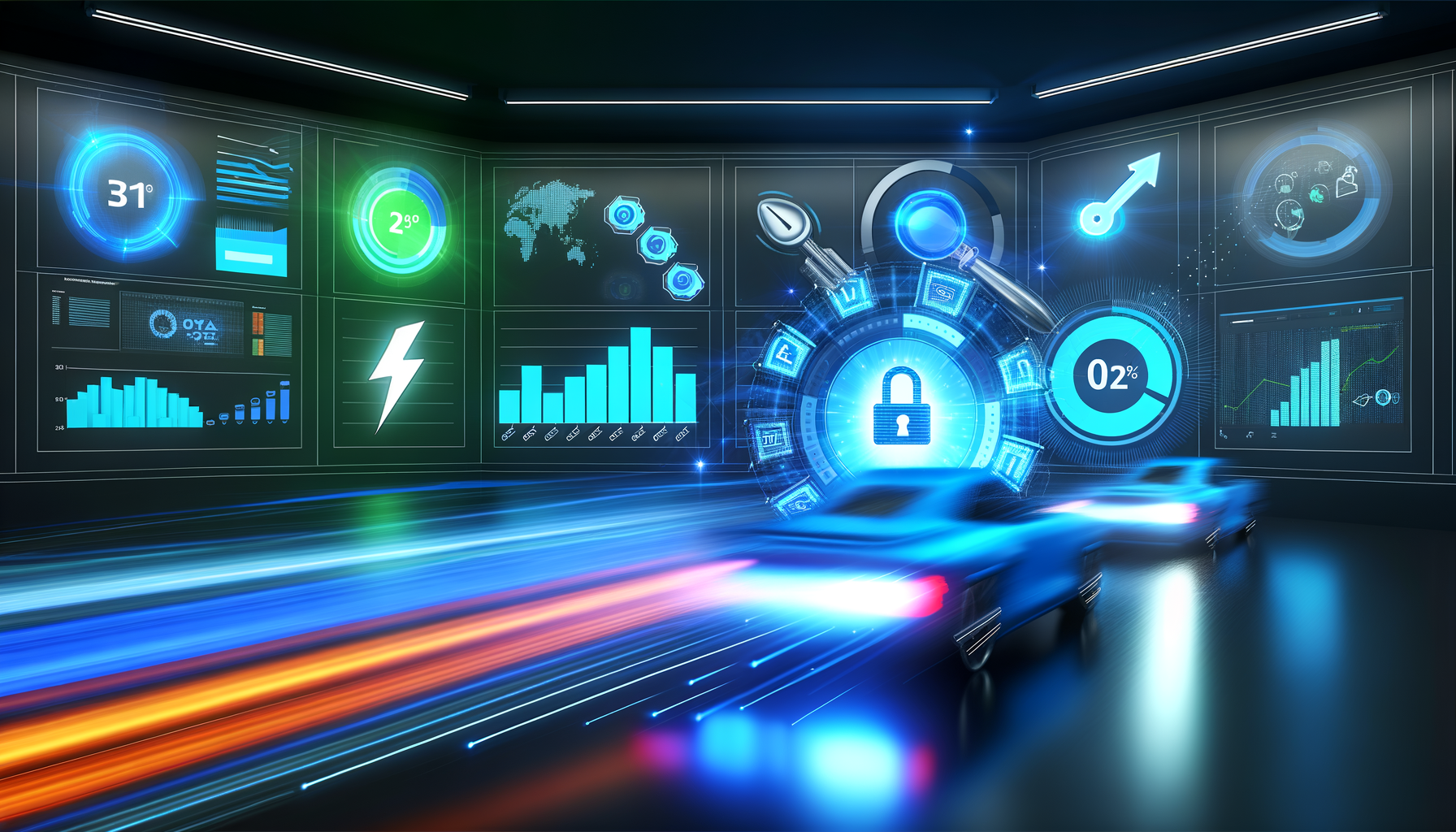
Diagram showing the transformation of raw data into strategic insights.
Data-driven digital marketing is akin to a compass, steering your campaigns toward success. By harnessing analytics, firms can translate raw data into actionable insights, enhancing decision-making processes.
Platforms like Google Analytics 4 and HubSpot have advanced their AI capabilities, allowing for predictive analytics that help forecast customer behavior and optimize conversion rates.
The key is not just collecting data but interpreting it effectively. This involves setting clear KPIs and leveraging tools that provide actionable insights.
CALLOUT
73% of companies investing in analytics report a positive ROI, highlighting its importance in digital marketing strategy.
Content Marketing Automation: A Game Changer
Streamlining Content Production
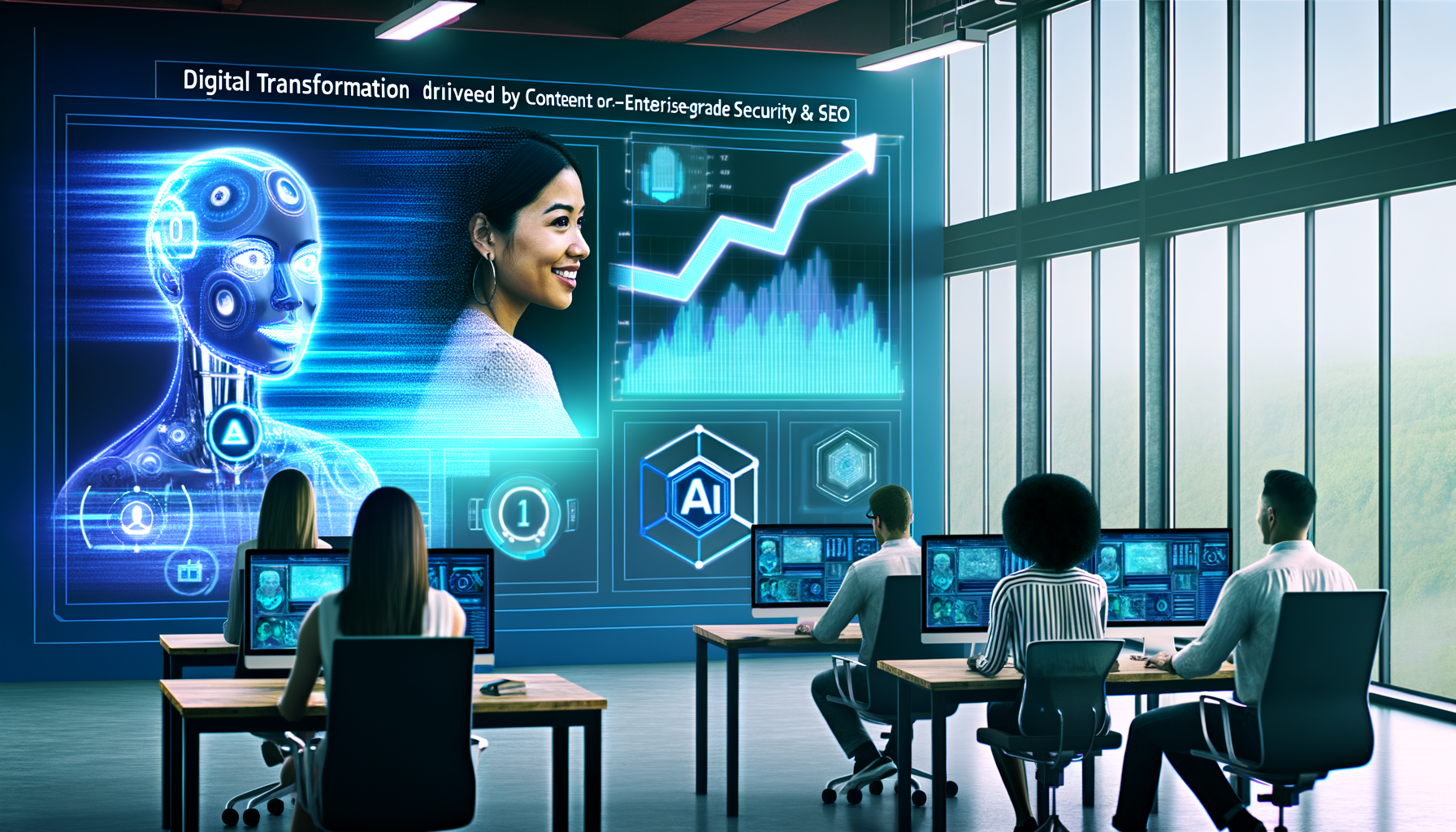
Team collaborating over automated content schedule.
Automation is reshaping content marketing by enhancing efficiency and consistency. Tools like HubSpot and Marketo automate content distribution, ensuring timely delivery to target audiences.
Automated content scheduling allows marketing teams to maintain a steady stream of high-quality content without manual intervention, freeing up resources for strategic planning.
This not only boosts productivity but also ensures content is personalized and relevant, increasing engagement rates significantly.
QUOTE
Automation is not about replacing humans; it's about empowering them to achieve more.
Driving High-Intent Traffic Through Predictive Analytics
Targeting the Right Audience
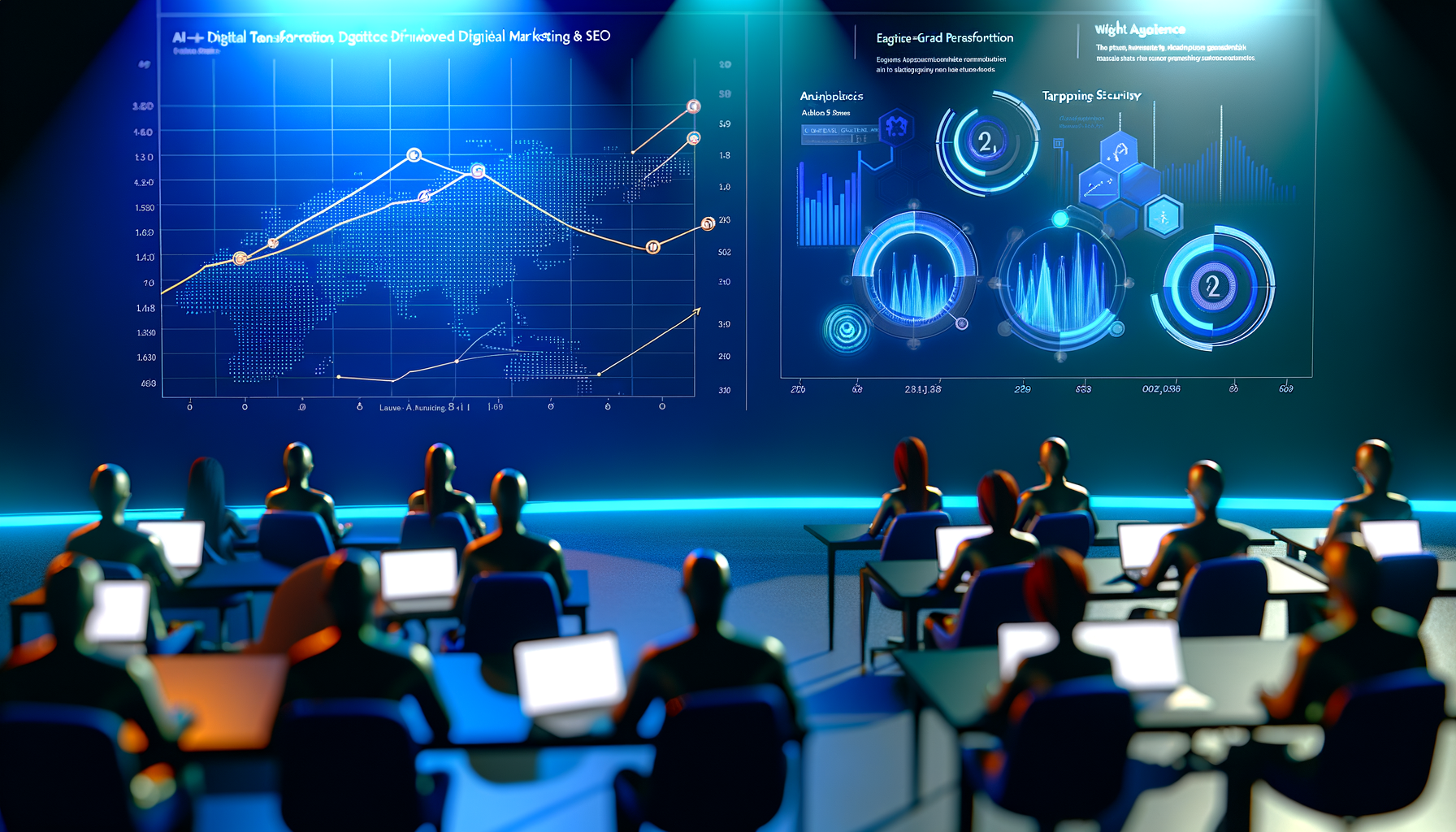
Analytics graph showing upward trends in traffic predictions.
Predictive analytics is the crystal ball of digital marketing, helping teams anticipate customer needs and tailor their strategies accordingly.
By analyzing historical data, predictive models can identify potential customers and personalize marketing efforts, boosting conversion rates.
Companies that integrate predictive analytics into their strategies see up to a 20% increase in high-intent traffic, according to recent industry reports.
LIST
- •Customer Segmentation
- •Behavioral Analysis
- •Forecasting Market Trends
B2B Lead Generation: The AI Edge
Leveraging AI for Quality Leads
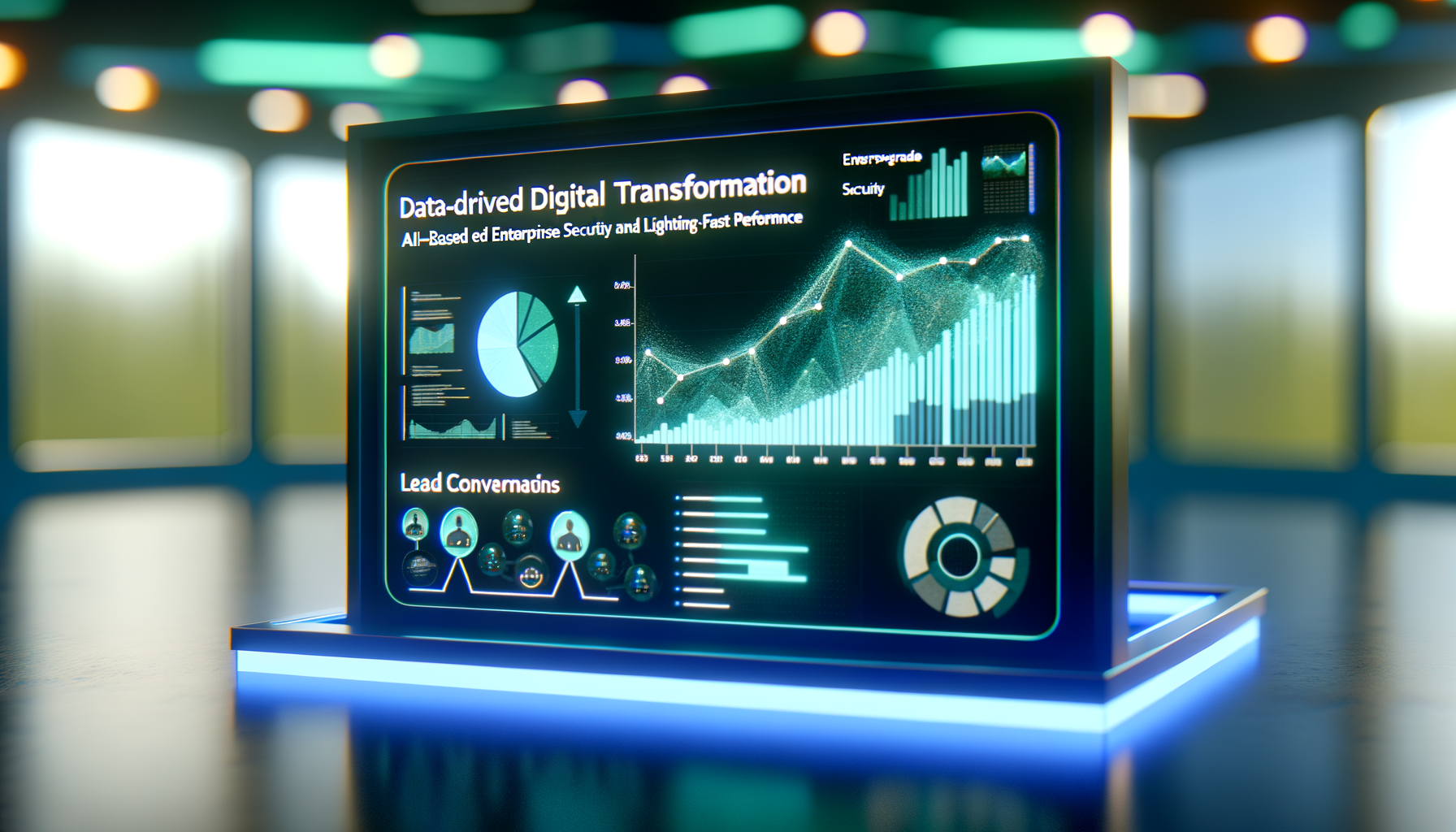
Graph showing AI-enhanced lead conversion metrics.
AI is transforming B2B lead generation by automating prospecting and personalizing outreach. This ensures that sales teams focus on high-quality leads, improving efficiency.
Tools like Salesforce Einstein AI use machine learning to score leads, enhance personalization, and predict customer needs, leading to higher conversion rates.
By adopting AI-driven tools, businesses not only streamline their lead generation processes but also enhance the quality of the leads, ensuring better sales outcomes.
CALLOUT
AI can boost lead conversion rates by up to 30%, proving its efficacy in B2B scenarios.
Frequently Asked Questions
QHow can AI enhance SEO strategies in 2025?
QWhat are the latest trends in data-driven digital marketing?
QHow does AI influence content personalization for SEO?
Conclusion
AI-driven marketing strategies are the future, offering enhanced personalization, efficiency, and ROI.
Future Vision
Embrace AI not only as a tool but as a strategic partner in your digital transformation journey.
Schedule your AI audit with Quicklook.
